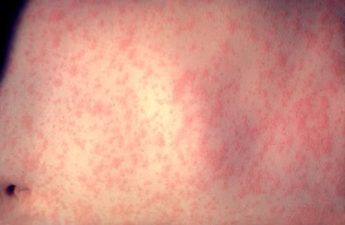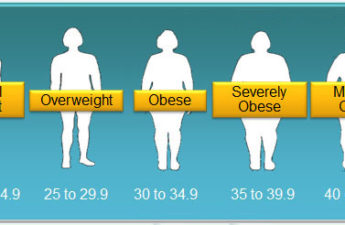Category: Public Health
Social factors help explain worse cardiovascular health among adults in rural vs. urban communities
Researchers found that factors such as levels of income and education, having enough food to eat, and owning a home mostly explained the higher rates of people in rural areas who had high blood pressure, diabetes, and heart disease.
The CDC Buried a Measles Forecast That Stressed the Need for Vaccinations
In an aborted plan to roll out the news, the agency would have emphasized the importance of vaccinating people against the highly contagious and potentially deadly disease that has spread to 19 states, the records show.
Combatting the measles threat means examining the reasons for declining vaccination rates
The anti-vaccine literature is not anti-science. It is filled with statistics and references to scientific studies, although the facts are often wrong. Parents who read this literature need more than the simple reassurance of experts that vaccines are safe and effective. They need to be shown evidence and have confidence that their concerns are being taken seriously.
Second measles case identified in Washington state
Measles is a highly contagious and potentially severe disease that causes fever, rash, cough, runny nose, and red, watery eyes. If one person has it, up to 9 out of 10 people nearby will become infected if they are not protected. It mainly spreads through the air after a person with measles coughs or sneezes.
Flu kills two area children
The first was an elementary-age child. The second was a preschool-age child.
CDC layoffs strike deeply at its ability to respond to the current flu, norovirus and measles outbreaks and other public health emergencies
The CDC began as a small branch of the U.S. Public Health Service in 1946 as an outgrowth of successes fighting malaria in southern states during World War II and before. Its founder, Dr. Joseph W. Mountin, envisioned that it would come to serve all states, addressing all communicable diseases. Since that time, the CDC has evolved into the nation’s premier public health organization, leveraging both clinical and population health sciences to prevent and mitigate challenges to the nation’s health.
Stay safe in freezing temperatures with these winter weather tips
The National Weather Service has issued a cold weather advisory through Wednesday. Most of the state will experience dangerously low temperatures that can lead to hypothermia, frostbite, and other health issues. These risks are especially high for people working outdoors, those without shelter or adequate heating, the elderly, and pets.
House Cats With Bird Flu Could Pose a Risk to Public Health
More than 80 domestic cats, among many other types of mammals, have been confirmed to have had bird flu since 2022 — generally barn cats that lived on dairy farms, as well as feral cats and pets that spend time outdoors and likely caught it by hunting diseased rodents or wild birds.
US dodged a bird flu pandemic in 1957 thanks to eggs and dumb luck
With a new strain spreading fast, will Americans get lucky again?
Race and place can contribute to shorter lives, research suggests
American Indians in Western and Midwestern states have the shortest life expectancy as of 2021, 63.6 years. That’s more than 20 years shorter than Asian Americans nationwide, who can expect to live to 84, according to a recent study by the Institute for Health Metrics and Evaluation at the University of Washington.
E-bike popularity is booming. But are they as safe as regular bikes?
E-bike users are more likely to sustain injuries to their spine and lower extremities (hips, legs, ankles and feet) compared to regular cyclists.
When injured, they are more likely to be admitted to hospital wards or intensive care units, where they also have a higher chance of undergoing surgery – and of dying.
Junk food and drug use cut into life expectancy gains for states
Bad habits such as junk food, smoking and illicit drug use are preventing longer lifespans even as technology brings major progress in diseases such as cancer and heart disease, according to a new study by the Institute for Health Metrics and Evaluation at the University of Washington.
Nine of the 10 states (all but North Dakota) with the longest life expectancies for babies born this year are dominated by Democrats, and all 10 have expanded Medicaid under the Affordable Care Act. All 10 states with the shortest life expectancies are controlled by Republicans (though Kentucky has a Democratic governor), and they include five of the 10 states that have not expanded Medicaid.
208 million Americans are obese or overweight, study finds
Nearly half of adolescents and three-quarters of adults in the U.S. were classified as being clinically overweight or obese in 2021. The rates have more than doubled compared with 1990.
Without urgent intervention more than 80% of adults and close to 60% of adolescents will be classified as overweight or obese by 2050.
Wildfire smoke exposure linked to increased dementia risk
New research led by the University of Washington in Seattle has found that long-term to wildfire smoke exposure was associated with a significant increase in the odds that a person would be diagnosed with dementia.
CDC Recommends Second Dose of 2024-2025 COVID-19 Vaccine for People 65 Years and Older and for People Who are Moderately or Severely Immunocompromised
The recommendation acknowledges the increased risk of severe disease from COVID-19 in older adults and those who are immunocompromised, along with the currently available data on vaccine effectiveness and year-round circulation of COVID-19.














